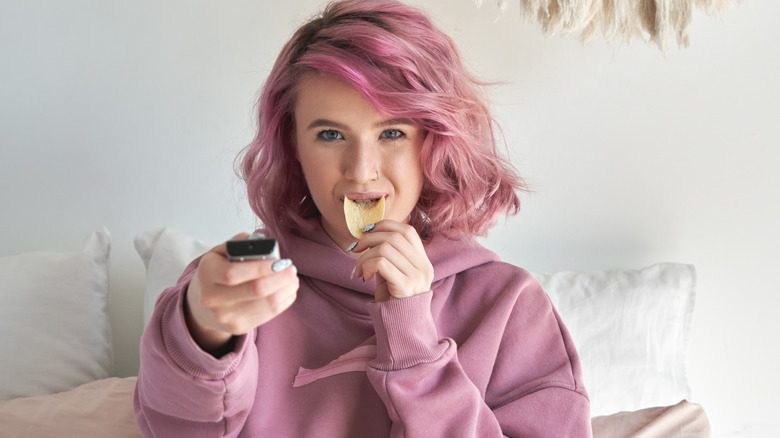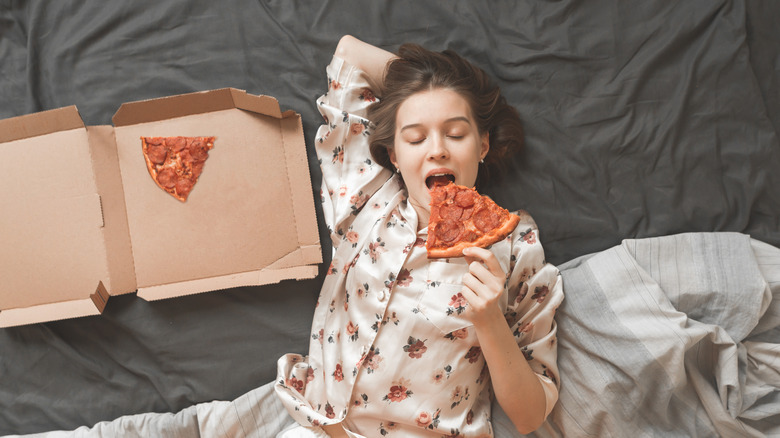Here's Why You Should Think Twice About Eating In Bed
When you're having a lazy day in your pajamas, it can feel so luxurious to simply not leave your bed all. This might mean that in between naps, your bed can serve as a number of places: a place to text, a movie theater, and probably, your kitchen table. While the idea of creating a fully stocked blanket fort — complete with entertainment and sustenance — sounds like a gleeful harkening back to childhood, there are a few reasons why you should drag yourself into the kitchen to have that snack.
The first reason is a simple one: no matter how careful you are, eating in bed will inevitably leave a mess. While curling up in a pile of crumbs is incredibly uncomfortable, other issues can arise by leaving traces of food in or on your bed (via Mattress Firm). The first and most obvious problem is damage to your mattress. Sure, if you spill a glass of wine in bed by accident, it's easy enough to wash your sheets (which you should be doing every two weeks anyway). But what about the mattress? Even if you try to spot clean the best that you can traces will be left behind, encouraging bacteria growth and adding your mattress to the long list of things in your house that you're not cleaning enough. Another thing you may be accidentally inviting by leaving traces of food in your bed are visitors of the creepy-crawly variety. Even the smallest bit of food or the littlest splash of drink can attract bugs.
To get a better night's sleep, keep food in the kitchen
A less obvious side effect of eating in bed has nothing to do with cleanliness and everything to do with quality of sleep. Studies have shown that using your bed for activities other than sleeping — like working, which isn't the best tactic when you're working from home — can decrease your quality of sleep (via Good Housekeeping).
When we use our beds for activities that make us feel engaged or alert, we are inadvertently telling our brains that where we place our head at night is also a good setting for work, for fun, for eating, and more. So when we crawl into bed at night to sleep, our minds don't automatically associate our bed with rest and "turning off." Instead, our brains are anticipating the possibility of many other things, snacks included.
Training our brains to associate our beds exclusively with rest and sleep will help us to relax, and naturally, sleep better. Dedicate your bed only to rest and it will in turn become a true respite from the world, as it was meant to be.

